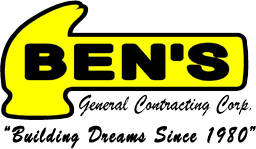Building Safely: A Long Island General Contractors Guide to Construction Site Safety
Commercial Construction Long Island sites are dynamic, often high-risk environments where safety is not just a priority—it’s a necessity. Every worker, from laborer to foreman, plays a role in creating a culture where everyone goes home safe at the end of the day. Whether you’re swinging a hammer, managing a crew, or just visiting the site, understanding construction site safety is essential.
Here’s a breakdown of key areas to focus on to maintain a safe construction site.
- Wear the Right Gear (PPE)
Personal Protective Equipment (PPE) is your first line of defense against hazards. Depending on the work being done, this might include:
- Hard hats
- High-visibility vests
- Steel-toe boots
- Safety goggles
- Gloves
- Hearing protection
Remember: PPE is only effective if it fits properly and is worn consistently.
- Keep the Site Organized
A clean site is a safer site. Loose tools, tangled cords, and debris create trip hazards. Establish a regular cleanup routine and ensure materials are stored properly. Clearly mark walkways, emergency exits, and hazardous areas.
- Know the Risks of Your Job
Different tasks come with different dangers. For example:
- Working at height? You need fall protection.
- Using power tools? Watch for kickbacks and wear eye protection.
- Operating machinery? Stay alert and follow lockout/tagout procedures.
Always review the Job Hazard Analysis (JHA) before starting a task.
- Use Tools and Equipment Correctly
Before using any equipment, make sure you’re trained and authorized. Inspect tools regularly, and report damaged equipment immediately. Never bypass safety features for convenience—those guards and cutoffs are there for a reason.
- Practice Fall Protection
Falls are the leading cause of death in construction. Use guardrails, safety nets, or personal fall arrest systems (harnesses and lanyards) when working at heights. And never assume something is “safe enough” without fall protection.
- Communicate Clearly
A loud, busy job site can make communication tricky. Use hand signals, radios, or visual cues when necessary. Safety meetings or “toolbox talks” are great for aligning the crew and flagging any new site hazards.
- Report Hazards Immediately
If you see something unsafe—say something. Whether it’s a broken scaffold or a coworker without a harness, reporting hazards protects everyone. Most accidents are preventable when risks are caught early.
- Stay Aware of Your Surroundings
Construction zones are constantly changing. What was safe yesterday might be a hazard today. Keep your head on a swivel—especially around heavy equipment or elevated work.
- Hydrate and Take Breaks
Safety isn’t just about avoiding injury—it’s also about avoiding burnout and fatigue. Long hours and harsh weather can wear you down, making you more prone to mistakes. Drink water, eat well, and take regular breaks.
- Build a Safety Culture
Safety isn’t just a checklist—it’s a mindset. Encourage open conversations about risks. Reward safe behavior. And make sure everyone, from new hires to supervisors, feels empowered to speak up and protect themselves and others.
Final Thoughts
Construction work is demanding, but it doesn’t have to be dangerous. When safety is taken seriously, accidents decrease, productivity increases, and morale improves. At the end of the day, the most valuable thing you build on a job site is trust—trust that everyone has each other’s back. Ben’s General Contracting Corp has several decades understanding site safety. Our Managers have taken the 30 hour OSHA course and we take safety very seriously.












